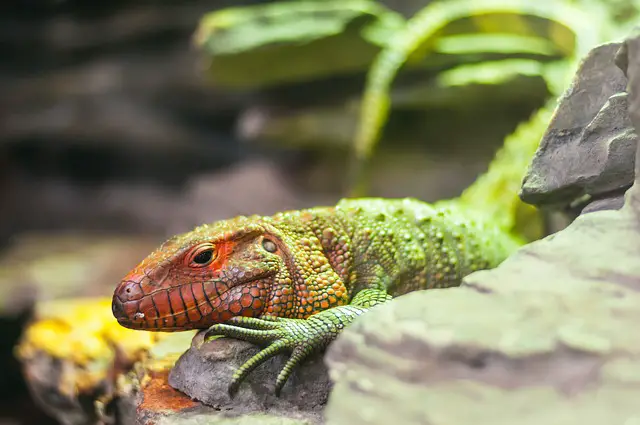Dubia roaches are a popular feeder insect for many different kinds of pet reptiles. They are easy to care for, and most reptiles love the taste. If you have a leopard gecko, you may be wondering if dubia roaches make a good food choice for them. In this article, we will explore the answer to that question.
Can leopard geckos eat dubia roaches?
The answer is yes! Leopard geckos can safely eat dubia roaches. In fact, dubia roaches are an excellent food choice for leopard geckos. They are a good source of protein and other nutrients, and they are also easy to digest. Your leopard gecko will probably enjoy the taste of dubia roaches, too!
If you decide to feed dubia roaches to your leopard gecko, there are a few things you should keep in mind. First of all, be sure to offer a variety of other foods as well. Leopard geckos need a well-rounded diet in order to stay healthy, so offering a variety of different foods is important. Dubia roaches can make up a part of your leopard gecko’s diet, but they should not be the only thing that your gecko eats.
Secondly, it is important to choose the right size roaches for your leopard gecko. Leopard geckos are not very big, so you will want to choose smaller roaches for them to eat. If you offer too large of a roach, your gecko may have difficulty digesting it properly. This can lead to health problems down the road, so it is best to avoid giving your gecko any roaches that are too large.
Where can I buy dubia roaches?
Dubia roaches can be purchased from a variety of different sources. You can find them online, at pet stores, or even at reptile shows. If you are not sure where to buy dubia roaches, your best bet is to do a quick search online. There are many websites that sell them, and you should be able to find one that meets your needs.
When purchasing dubia roaches, be sure to ask the seller how they have been raised. Roaches that have been raised in captivity are healthier than those that have been collected from the wild. They will also be less likely to carry any diseases or parasites, so it is important to choose a reputable source when buying dubia roaches.
5 other insects that can be fed to Leopard Geckos and why
In addition to dubia roaches, there are a few other insects that make good food choices for leopard geckos. Here are five of the best:
Mealworms – Mealworms are an excellent source of protein and other nutrients. They are also easy to digest, which makes them a good choice for leopard geckos.
Crickets – Crickets are another good source of protein and other nutrients. They can be a little harder to digest than mealworms, but they are still a good choice for leopard geckos.
Waxworms – Waxworms are high in fat, so they should only be fed as occasional treats. However, they can a good option if your leopard gecko is in need of some extra calories.
Butterworms – Butterworms are similar to waxworms, in that they are high in fat. However, they are a bit easier to digest than waxworms, so they can be fed more often.
Hornworms – Hornworms are an excellent source of protein and other nutrients. They are also relatively easy to digest, making them a good choice for leopard geckos.
As you can see, there are a variety of different insects that make good food choices for leopard geckos. If you want to provide your gecko with a well-rounded diet, be sure to offer a variety of different foods. Dubia roaches can make up a part of your leopard gecko’s diet, but they should not be the only thing that your gecko eats.
What other foods can be given to a Leopard Gecko and why?
In addition to insects, there are a number of other foods that can be given to leopard geckos. Here are five of the best:
Fruits – Fruits make a good choice for leopard geckos, as they are a source of vitamins and minerals. Some good options include apples, strawberries, and mangoes.
Vegetables – Vegetables also provide vitamins and minerals to leopard geckos. Some good choices include broccoli, zucchini, and carrots.
Protein Supplements – Protein supplements such as cricket powder or mealworm powder can be added to your leopard gecko’s diet. They are an excellent source of protein and other nutrients.
Can I breed insects for leopard geckos myself?
Yes, you can breed insects for leopard geckos yourself. However, it takes a lot of time and effort to do so correctly. If you are not sure how to get started, your best bet is to find a reputable breeder who can help you get started.
If you decide to breed your own insects, be sure to start with healthy specimens. This will help ensure that the offspring are also healthy. It is also important to make sure that the insects have a good diet and plenty of room to live in. By following these tips, you can help create a healthy environment for breeding insects for leopard geckos.
Conclusion
Protein supplements such as cricket powder or mealworm powder can be added to your leopard gecko’s diet. They are an excellent source of protein and other nutrients. By following these tips, you can help ensure that your leopard gecko has a well-rounded diet that meets its nutritional needs. Thanks for reading!





